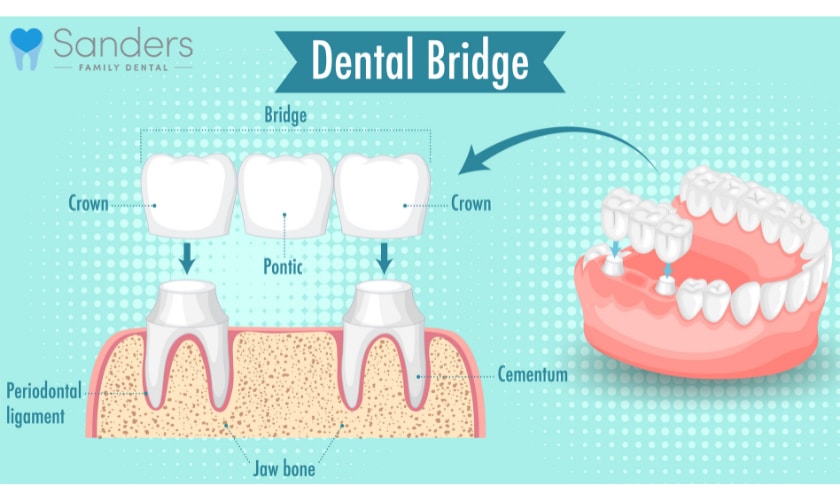Call: (630) 812-7929
What Are The Best Tooth Replacement Options for Missing Teeth?


Missing teeth can cause a lot of distress and self-consciousness. Tooth replacement is an important part of dental health, as it helps restore the appearance and function of your smile. But what are the best tooth replacement options for missing teeth? This article will provide information on the available choices and how to choose one that’s right for you.
No matter how old you are or why you’ve lost your teeth, tooth replacement is essential if you want to maintain your oral health. Tooth replacement options can help restore the appearance and function of your smile, as well as prevent other dental problems from developing. The most commonly used tooth replacement methods are dentures, bridges, implants, and partial dentures.
Dentures
Dentures are one of the most widely used tooth replacement options. They’re removable prosthetic that fits over your gums where teeth used to be. Dentures come in two types: full or partial dentures. Full dentures replace all the missing teeth on either the top or bottom arch of your mouth while partial ones replace only some of them.
Advantages
One advantage of certain good oral health. Tooth loss can lead to problems like gum disease, difficulty in speaking and eating, jaw misalignment, and further tooth loss. Tooth replacement not only replaces the physical presence of a tooth but also preserves facial features such
ures is that they’re relatively low-cost compared to the other tooth replacement options. They’re also easy to care for and can be removed for cleaning and soaking.
Disadvantages
The main disadvantage of dentures is that they can be uncomfortable and may require frequent adjustments if your teeth shift over time. Additionally, they don’t offer the same level of stability as bridges or implants, so you may have difficulty speaking or eating certain foods with them in place.
Alternatives
If you find that dentures are uncomfortable or not a good fit for your lifestyle, there are other tooth replacement options available. Bridges and implants provide more stability and comfort than dentures and don’t require removing them for cleaning.
Bridges
Bridges are a more permanent alternative to dentures, as they’re cemented in place on either side of the gap where your missing teeth used to be. They can be made from metal, porcelain-fused-to-metal, all-porcelain, or resin materials, and are typically supported by two adjacent teeth.
Advantages
One advantage of bridges is that they provide a more natural look than dentures and a better fit than implants. Bridges also last longer than dentures and provide better stability when speaking or eating certain foods. Additionally, they don’t require any special cleaning or maintenance beyond regular brushing and flossing.
Disadvantages
Bridges are more expensive than dentures and may not be covered by dental insurance. Additionally, they can only be used when there are adjacent teeth to support them, which may not be suitable for everyone. Lastly, bridges don’t last as long as implants, so they will need to be replaced in the future.
Alternatives
If you find that a bridge isn’t right for you, there are other tooth replacement options available. Implants provide better stability than bridges and don’t rely on adjacent teeth for support. Partial dentures offer a more affordable solution than bridges and implants but may require frequent adjustments.
Implants
Implants are a permanent tooth replacement option that can last for decades with proper care. They’re supported by a titanium post, which is surgically implanted in the jawbone to act as an artificial root for the prosthetic crown. Implants provide strength and stability similar to natural teeth and can be used to replace one or several missing teeth.
Advantages
One advantage of implants is that they look and feel like natural teeth, so you don’t have to worry about them slipping out of place or coming loose. Additionally, they don’t require any special cleaning or maintenance beyond regular brushing and flossing.
Disadvantages
The main disadvantage of implants is that they’re the most expensive tooth replacement option available. Additionally, not everyone is eligible for an implant due to certain underlying health conditions like diabetes or gum disease. Lastly, it can take several months for the implant post to heal before a prosthetic crown can be attached.
Alternatives
If you find that implants aren’t right for you, there are other tooth replacement options available. Bridges offer more stability than dentures but may need to be replaced in the future. Partial dentures provide a more affordable solution than bridges and implants but may require frequent adjustments.
Conclusion
No matter which tooth replacement option you choose, it’s important to consult with your dentist to find the best solution for your needs. They can help you decide if dentures, bridges, or implants are right for you and discuss any potential risks associated with the procedure. With proper care and maintenance, your new teeth will last for years to come.
A: Partial dentures offer a more affordable solution than bridges or implants but may require frequent adjustments.
A: Tooth replacement options can last anywhere from 5-20 years depending on the type of material used and how well they’re cared for.
A: The risks associated with Tooth Replacement Options vary depending on the type chosen, but can include infection or gum irritation. It’s important to discuss any potential risks with your dentist before proceeding with treatment.




